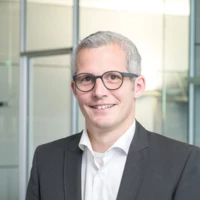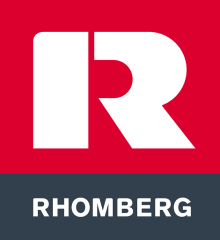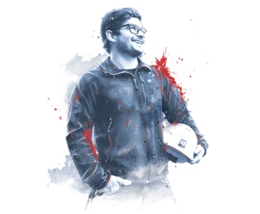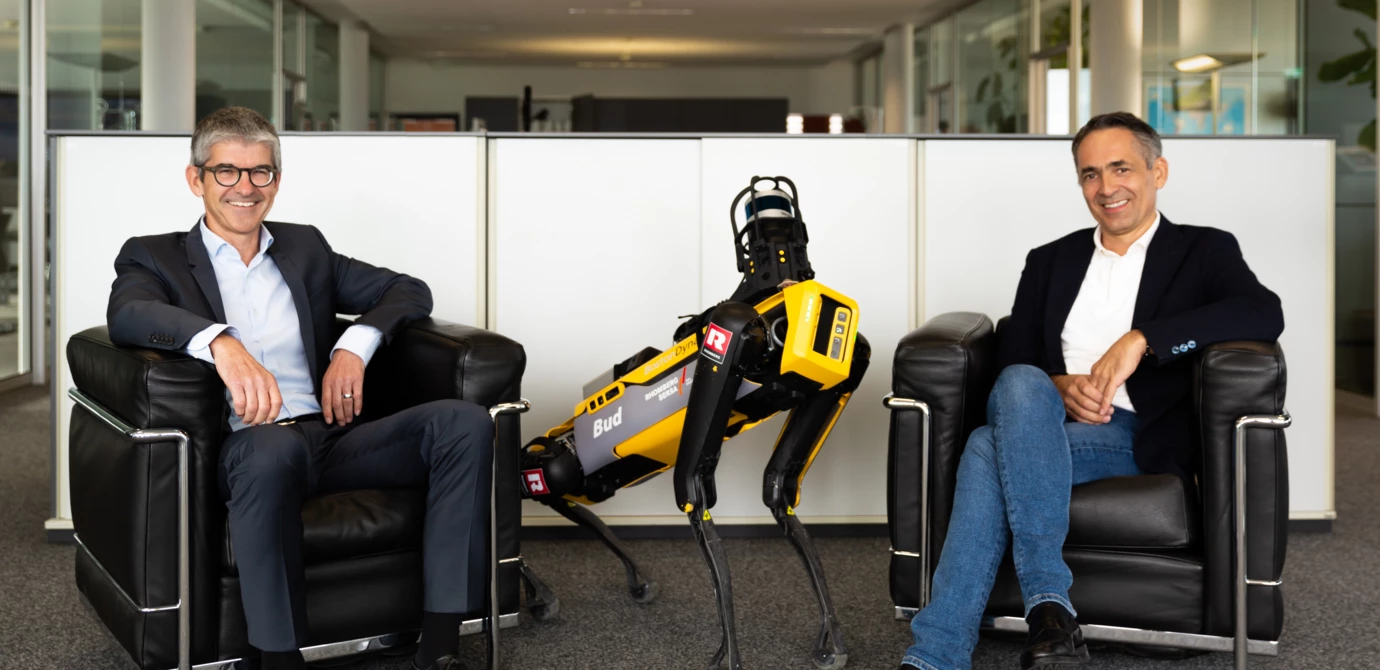Rhomberg Group draws positive balance: growth continues
Revenue growth in both divisions - Focus on digitalisation and systematisation - Rhomberg Bau increasingly in demand as project and district developer - Rail Technology segment strengthens internationally
Bregenz, September 18, 2020 – The Rhomberg Group has once again grown in the past business year 2019/2020. Total sales increased to 782.5 million Euros - in the previous period that figure was 753 million Euros. The two business units both reported positive results: the Construction and Resources division generated €333.2 million, while the Rail Technology division's operating performance amounted to €449.3 million. The total number of employees increased slightly from 2,845 to 3,020, with 763 of the employees working in Vorarlberg. At 41.5 million euros, the investment volume was around 30 percent higher than in the same period of the previous year. As of the balance sheet date of March 31, 2020, the effects of the Corona-related shutdown could already be noticed, but had not yet significantly impacted in the company's figures. Managing directors DI Hubert Rhomberg and Mag. Ernst Thurnher expect that all divisions will be affected in the current financial year, with the extent of the impact depending on the economic development in the target markets.
Innovation with a look outside the box
Ongoing research and development at Rhomberg Bau result in innovative concepts that offer solutions to the challenges of our time - from affordable, socially just housing to resource-efficient construction and housing to the development of vibrant neighbourhoods "The research project Lerchenstraße in Wolfurt has confirmed our conviction that timber construction has great potential in terms of prefabrication and systematisation," reports Ernst Thurnher, who in this respect considers timber construction advantageous over conventional construction.
The order of the day is to now make use of the new ways and approaches to create affordable, attractive living space, adds Thurnher. "Based on the results of the study, we have developed a system that makes this possible: WoodRocks." The timber-system construction with a high degree of prefabrication allows multi-story residential complexes to be built in record time, thanks to optimised planning and lean management. A project in Vienna is already lined up.
Urban and district development: quality of life for the young and the old
In addition to classic construction projects, Rhomberg Bau is also increasingly involved in the sensible reuse of brownfield sites and the development of attractive neighborhoods. In Lustenau, the starting signal will soon be given for the new Rheindorf district centre. Socially mixed living space combined with childcare, commercial units and restaurants will be created in four buildings, one of them an eight-story wooden building.
In this area, Rhomberg Deutschland is active on an even larger scale. A completely new urban quarter is being built on the former Rinker site in a central location in Ravensburg: living space for generations, with lots of green and open space, including a nursery and a care facility. Ernst Thurnher reports that the German subsidiary of the Group is going from strength to strength and that the order situation is also promising: "We were just recently awarded contracts for two new properties in Kempten and Friedrichshafen."
The district development at Vienna Central Station was completed with the commissioning of a second elevated parking garage. The parking garage offers more than 800 parking spaces, as well as partially greened building sides and a photovoltaic system. The Vienna branches of Goldbeck Rhomberg and Rhomberg Bau acted as general contractors. In April, the Rhomberg Bau team also moved into a new office in the self-built city quarter.
In line with its commitment to sustainability, Rhomberg Bau is driving forward the revitalisation of existing buildings. In Rapperswil-Jona, in the Swiss canton of St. Gallen, the contractor was commissioned by a UBS investment foundation to act as total contractor for the replacement of existing buildings and the refurbishment of a residential complex with a total of 68 apartments. In Bregenz, a young master confectioner is fulfilling her dream of opening her own confectionery shop and café in her great-grandparents' venerable villa with the active support of Rhomberg's restoration experts.
50 years of the quarry: from the quarry to the urban mining center
After all, a cornerstone of the recycling economy and resource management in the company is celebrating its 50th anniversary: the Hohenems-Unterklien quarry. The managing directors see the company's own resource centre as an important sustainability project for the future: "Ideally, we will continue to extract mineral raw materials there. But in any case, we will use the resource center as an 'urban mining center' to an extended extent in order to process building materials of all kinds for the domestic economy." Urban mining involves recycling raw materials that have already been used once as secondary raw materials. The resource center helps Rhomberg to achieve the shortest transport distances in the Austrian construction industry: The material covers an average distance of just nine kilometers to the place of use - the national average is 30 kilometers.
Rail division on track for international success
The Rhomberg Sersa Rail Group, in which Rhomberg holds half of the shares, has built on the economic success of the past financial year and further strengthened itself internationally. Rhomberg Rail Australia acquired the rail construction specialist RKR Engineering from Emu Plains, Sydney, thus expanding its capacities on the Australian rail market. And since the beginning of this year, the Swiss company Donatsch Söhne AG, based in Landquart, has been part of the Rail technology Group. The company operates in the field of mechanical steel processing, with core competencies in structural engineering and rail technology.
Over in Austria, the Rhomberg Sersa won the contract for the Styrian project of the century, the Koralm Tunnel. The joint venture "FF Koralm" with its partner PORR was awarded the contract for the rail engineering infrastructure. The 34.1-kilometer section of the Koralm Railway will be built from May 2021 and the other construction measures will be supervised up to commissioning. The contract is worth around 160 million euros. With the joint venture Bahntechnik Schwäbische Alb (ABSA), Rhomberg Sersa is involved in the construction of the new Wendlingen-Ulm line in Germany. This is the first time that two major projects are being carried out in parallel.
Railroad engineering experts in Switzerland have signed a framework contract with the SBB for the renewal of switches and are refurbishing another structure of the Rhaetian Railway, the Bergünerstein Tunnel. And in England, Rhomberg Sersa UK is providing slab track for London's King's Cross station.
Hubert Rhomberg expects the EU's climate protection initiative to provide further strong impetus for the rail business: "The Green Deal will provide considerable funds for the expansion of sustainable mobility, a good part of which will probably also flow into cross-border rail infrastructure. As a full-service provider, we want to help get these future projects reliably on track.
Digitalisation requires digital specialists
Digitalisation is well on its way in the rail technology sector. Modern technologies open up potential for optimisation in a wide variety of ways. In the case of the Eppenberg Tunnel in the Swiss canton of Solothurn, for example, the construction site was digitally recorded in advance by drone flight to enable optimal planning of the construction site equipment. RFID chips embedded in the rail sleepers, which contain easy-to-read information such as batch numbers, facilitate subsequent maintenance. And model-based design, construction and operation (BIM) is also becoming increasingly important. At its core is a 3D model that is enriched with comprehensive data. Added value is created when this information is linked and made available to all project participants. "This gives us an efficient tool to network the know-how available in the company and to optimise project execution," explains Rhomberg.
Progressing digitalisation, however, also increases the need for the relevant specialists. The family-owned company is therefore increasingly looking for IT experts in addition to construction managers to live up to its own claim as an innovation driver and pioneer in future topics.
Corona crisis as an opportunity for change
"As it goes, our forward-looking investment strategy in future technologies proved to be spot on in the crisis situation," Hubert Rhomberg states. By introducing efficient, digital applications, the company was well prepared for the unexpected challenges. The project and process management platform RHome, implemented in 2019 in the area of construction and resources, allows employees and project participants to access information regardless of location, to share knowledge and to work together on projects in virtual space. And the new 3D apartment configurator simplifies the process for both the sales team and customers: without any personal contact, prospective property buyers can use it to try out various furnishing options online and design a model apartment. Digitalisation has undoubtedly picked up speed with the Corona crisis, says Rhomberg. "We see this as an opportunity to successfully evolve into a product, process and sales-oriented organisation."
An important signal in this regard is also the strategic realignment of Rhomberg Bau's management. With Matthias Moosbrugger, previously Head of Marketing and Communications at the Rhomberg Group, the areas of digitalisation, sustainability and innovation are now also anchored in the top management. In addition to Moosbrugger, Tobias Vonach is a new member of the executive committee. He is responsible for finance, controlling, accounting, and opportunity and risk management.

Questions?
Get in touch with us!
Contact now







